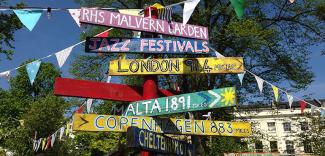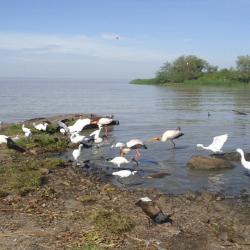
Cultural Heritage and Just Cities
Culture has been increasingly entering the global urban agenda – being recognised within the Sustainable Development Goals, the New Urban Agenda, Agenda 2063 and through Agenda 21 that argues for culture to be recognised as the fourth pillar of sustainability. Cultural policy mobility through instruments such as UNESCO Conventions have resulted in a growing recognition for the important of cultural policy, and since Habitat III, this has increasingly coalesced around the urban. With this comes a range of risks and opportunities, and the purpose of this project is to explore how cultural heritage can better contribute to realising more just cities in different contexts.
To date the project team have produced a report on the cultural heritage and urban development through the lens of festivals; an article for a Special Issue in the International Journal of Cultural Heritage; have engaged in collaborative writing and speaking –CHIME Conference and have collaborated in the search for new funding. This has culminated in a new project funded by the British Academy on Mapping and Mobilising Heritage Values for Sustainable Urban Development.
Current priorities include
Contributing / shaping global debate and narratives on culture and development. This will involve engaging the SDGs, New Urban Agenda, Agenda 2063, Agenda 21 and other relevant documents, in the interest of exploring how these narratives can contribute to the process of realising just cities.
Comparing the implementation of cultural planning, mapping and cultural impact assessments in the various Local Platforms. Cultural planning is about surfacing cultural practices and leveraging cultural and place identities through integrating culture into urban planning processes. The Gothenburg Platform is planning to implement the City-developed CIA tool in collaboration with officials. The Cape Town Platform is working with the City of Cape Town to implement and monitor cultural mapping and planning. The Kisumu Platform is eager to implement a cultural mapping and planning process. This project will therefore collaborate and compare the implementation of cultural planning in three Local Platforms.
Securing funding through joint exploration of our work, for instance around cultural economy discourses in the Global South
Usefulness
It is acknowledged that culture and cultural heritage are necessary components in a process aiming at ‘Realising Just Cities’. This project draws on experience, knowledge and outcome of projects from different Local Platforms to inform policies and disseminate recommendations, knowledge and experience to a wider audience and to other cities, local governments and regions.






